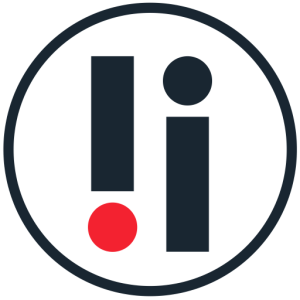- October 17, 2024
- 0 Comments
- By MerciIT
Executive Summary
This case study examines the challenges and subsequent talent acquisition strategies implemented by our Client, a healthcare technology firm specializing in artificial intelligence-driven patient analytics. Facing significant obstacles in recruiting specialized AI talent with healthcare domain expertise, the organization implemented a comprehensive talent strategy that yielded measurable improvements in recruitment efficacy and team development.
Client Profile
Established in 2019, our Client developed proprietary artificial intelligence solutions for analyzing patient data and generating predictive insights for healthcare providers. Following initial market success and increased demand for their analytics platform, the organization necessitated substantial expansion of their technical capabilities through specialized talent acquisition.
Challenges Identified
Specialized Talent Scarcity
The organization encountered significant difficulty identifying candidates possessing both the requisite technical proficiencies (Python, TensorFlow, natural language processing, machine learning model deployment) and healthcare industry knowledge. This specialized intersection of competencies proved particularly scarce in the current labor market.
Regulatory Compliance Requirements
The development of healthcare artificial intelligence systems necessitated personnel with comprehensive understanding of healthcare regulations, particularly the Health Insurance Portability and Accountability Act (HIPAA). Additionally, the management of extensive medical datasets required professionals with expertise in secure data governance methodologies.
Market Competition Intensity
The organization faced substantial competitive pressure from established technology corporations and emerging healthcare ventures recruiting from an identical, limited talent pool. This competitive environment resulted in elevated compensation expectations and retention difficulties as candidates frequently received multiple employment offers.
Strategic Implementation
Following comprehensive analysis of their talent acquisition challenges, our Client executed a multi-dimensional recruitment and retention strategy comprising the following elements:
Specialized Recruitment Partnership
The organization established a formal partnership with a talent acquisition firm specializing in healthcare technology recruitment. This collaboration provided access to an established network of pre-qualified AI professionals with healthcare sector experience.
Professional Development Program
The organization instituted a formal training curriculum to enhance artificial intelligence capabilities among existing software engineering personnel while concurrently providing healthcare regulation and domain knowledge education for newly recruited AI specialists.
Academic Institution Collaborations
Our Client formalized partnerships with academic institutions offering specialized curricula in health informatics and artificial intelligence. These collaborations included research sponsorship opportunities and structured internship programs for high-potential students.
Compensation Structure Enhancement
The organization redesigned their remuneration framework to incorporate healthcare-specific incentives, including sponsorship for specialized certifications, professional conference participation, and research publication support.
Distributed Work Implementation
To expand geographical access to talent resources, our Client implemented a formalized hybrid work model enabling remote work capabilities while maintaining scheduled in-person collaboration sessions.
Quantitative Outcomes
Following twelve months of strategic implementation, our Client achieved the following measurable results:
- Workforce Expansion: Increased artificial intelligence and machine learning personnel from 8 to 23 professionals
- Retention Improvement: Decreased annual turnover rate from 28% to 12%
- Professional Development: Successfully completed artificial intelligence specialization training for 14 existing personnel
- Product Development Efficiency: Reduced development timeline for next-generation predictive models by 30%
- Regulatory Compliance: Established dedicated Artificial Intelligence Ethics and Compliance function ensuring regulatory adherence across all development activities
Strategic Insights
Domain-Specific Technical Expertise: The intersection of technical competencies and healthcare domain knowledge represents a critical success factor in healthcare artificial intelligence implementation.
Internal Capability Development: Investment in structured professional development programs provides greater sustainability than exclusive reliance on external recruitment.
Comprehensive Retention Strategy: While competitive compensation remains essential, healthcare technology professionals demonstrate significant valuation of meaningful work opportunities and continuing education.
Geographic Flexibility: Implementation of remote work protocols substantially expands access to specialized talent resources.
Strategic Talent Pipeline Development: Formal collaboration with educational institutions establishes sustainable talent acquisition channels supporting long-term organizational growth.
Conclusion
Our Client’s comprehensive approach to specialized talent acquisition demonstrates that organizations can effectively address workforce challenges in healthcare technology through strategic recruitment methodologies, internal capability development, and thoughtfully structured retention initiatives, even within highly competitive specialized talent markets.



